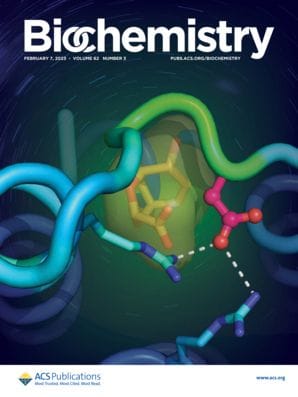This upcoming Special Issue will highlight the use of computational methods to drive breakthroughs in biochemistry and biochemical processes. Submit your manuscript by August 31, 2024.

Computational modeling is a powerful tool for gaining molecular-level insights. Recent advancements in machine learning (ML) have further revolutionized the field of biochemistry, allowing chemists to distill big data. The application of computational modeling in biochemistry can explain enzyme mechanisms, elucidate the dynamic behaviors of biological molecules and systems, and predict the structures and functions of proteins and other macromolecules.
A new Special Issue from Biochemistry will focus on this exciting topic, highlighting how computational methods continue to drive breakthroughs and provide new insights into our understanding of biochemical processes.
Relevant topics include creating or applying computational modeling to provide a quantitative comparison between experiments and computation on:
- Structure and dynamics of biomolecules
- Spectroscopy of biomolecules
- Enzyme catalysis
The papers should:
- Create or apply computational modeling to provide new insights into the structures and dynamics of biomolecules or the functions of enzymes, or/and
- Create or apply computational modeling to make new predictions of the structures and functions of biomolecules, verified by experiments.
Organizing Editors
Yu-Shan Lin, Associate Editor, Biochemistry
Tufts University, United States
Xuhui Huang, Guest Editor
University of Wisconsin-Madison, United States
Submission Instructions
- Log in to the ACS Paragon Plus submission site and choose Biochemistry.
- Select your manuscript type and, under “Special Issue Selection,” choose “Computational Biochemistry: Bridging the gaps between experiments and molecular insights”
All manuscripts will undergo the normal peer review process. For additional submission instructions, please see the Biochemistry Author Guidelines.
The deadline for submissions is August 31, 2024.

